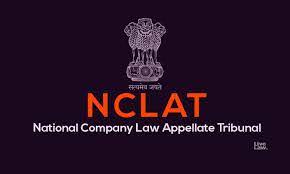National Company Law Appellate Tribunal (NCLAT)

The National Company Law Appellate Tribunal (NCLAT) is a quasi-judicial body in India that
serves as the appellate authority for matters arising from the National Company Law Tribunal
(NCLT) and various other forums related to corporate law and insolvency matters. NCLAT was
established under the Companies Act of 2013 and the Insolvency and Bankruptcy Code, 2016,
with the primary objective of providing a forum for appeals against decisions made by NCLT
and other adjudicating authorities. Here are some key aspects of NCLAT:
1. Appellate Jurisdiction:
• NCLAT has appellate jurisdiction over orders and decisions passed by NCLT benches
across India. These orders can pertain to a wide range of corporate and insolvency
matters, including mergers and acquisitions, insolvency resolutions, and corporate
governance issues.
2. Composition:
• NCLAT is typically composed of a Chairperson, who is a retired judge of the Supreme
Court or a sitting or retired Chief Justice of a High Court, and Judicial Members and
Technical Members who are experts in areas like finance, law, and accounting.
3. Appeals and Review Petitions:
• Parties aggrieved by orders or decisions of NCLT or other relevant forums can file
appeals before NCLAT. NCLAT reviews these appeals to determine if the orders are
just and in accordance with the applicable laws.
• NCLAT also has the authority to hear review petitions against its own orders to correct
any errors or omissions in its decisions.
4. Speedy Resolution:
• NCLAT plays a crucial role in expediting the resolution of corporate and insolvency
cases in India. Its establishment aims to ensure that parties have access to a swift and
efficient appellate process.
5. Precedent-Setting Decisions:
• NCLAT's decisions often have a significant impact on the interpretation and application
of corporate and insolvency laws in India. They serve as important precedents for future
cases.
6. Coordination with Other Authorities:
• NCLAT collaborates with various regulatory bodies and authorities, including the
Ministry of Corporate Affairs and the Insolvency and Bankruptcy Board of India
(IBBI), to ensure effective enforcement and compliance with corporate and insolvency
laws.
7. Alternative Dispute Resolution:
• NCLAT encourages parties involved in corporate disputes and insolvency matters to
explore alternative dispute resolution methods, such as mediation and conciliation, as a
means of resolving conflicts outside of traditional court proceedings.
8. Promoting Fairness and Transparency:
• NCLAT strives to ensure fairness, transparency, and adherence to legal principles in the
resolution of corporate disputes and insolvency matters. It plays a pivotal role in
upholding the rights of various stakeholders, including creditors, shareholders, and
employees.
In summary, the National Company Law Appellate Tribunal (NCLAT) is a crucial appellate
authority in India's legal framework for corporate and insolvency matters. It provides a forum
for parties to challenge decisions made by NCLT and other adjudicating authorities, helping to
ensure that the principles of justice and the rule of law are upheld in the corporate and
insolvency landscape. NCLAT's role in reviewing and adjudicating appeals contributes to the
efficient and effective resolution of complex corporate disputes and insolvency cases



